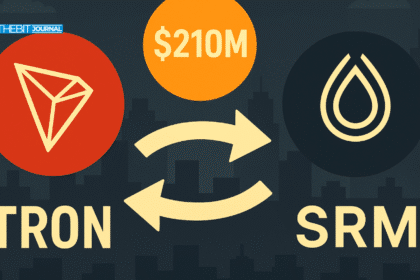In what some are calling a turning point with a landmark ruling, the United States Fifth Circuit Court of Appeal has nullified the sanctions imposed on Tornado Cash-the cryptocurrency mixer; by the Treasury Department. This is a phenomenal win for crypto privacy advocates and a reflection of how far the government would go in the intervention of open-source technology.
It is a victory for liberty, for privacy, and for innovation in the new crypto world, says Paul Grewal, chief legal officer at Coinbase. It not only freed Tornado Cash from the sanctions list; its ruling left open-the-table for a much larger inquiry into the open-source protocols and privacy-focused crypto applications.
A Big Win for Crypto Privacy
Tornado Cash was sanctioned by the US Treasury Office of Foreign Assets Control in August 2022 for having allegedly money-laundered over $7 Billion in digital currency since its establishment in 2019, including $455 Million from the North Korean group Lazarus. The introduction of the sanctions prevents the transaction of U.S. persons with Tornado Cash on the basis that it is “aiding or facilitating” illegal acts.
However, the court said the Treasury had gone overboard in imposing sanctions on the immutable smart contracts of Tornado Cash. According to federal law, smart contracts are not “property”. These smart contracts, pieces of code running autonomously on the blockchain, can’t be owned by anyone or anything.
Grewal explained:
“Privacy wins. Today the Fifth Circuit held that U.S. Treasury’s sanctions against Tornado Cash smart contracts are invalid. This is a big win for crypto and for all who care about freedom.”
The court’s decision means U.S. persons can use Tornado Cash again, a protocol designed to add privacy to crypto transactions.

Crypto Regulation and Open-Source Tech
This has big implications for the broader crypto space. Grewal said balanced regulation is key, and innovation shouldn’t be stifled with overbroad measures. The attorney general said no one wants crypto to be used for criminal activity, and to target open-source tech because the few bad actors misuse it is unreasonable and even counterproductive.
“Blocking open-source tech entirely because a small percentage of users are bad actors is not what Congress intended. These sanctions went way beyond Treasury’s authority and the Fifth Circuit agreed,” he said.
The aforementioned case gives rise to the struggle which is all too evident between the regulators and the fast evolving world of cryptocurrencies. Tornado Cash and similar open-source protocols may assure privacy and decentralization, but they are also easy to misuse. This sets a precedent to protect innovation and make sure government action doesn’t go too far.
Coinbase’s Defense of Privacy and Innovation
Coinbase took on a pivotal role in these sanctions, standing up for clear and fair crypto privacy regulations. This is part of the ongoing effort to promote innovation while protecting users from regulatory overreach. As Grewal said:
“This decision not only protects the rights of crypto users but also lays the groundwork for a more secure and open crypto ecosystem.”

Coinbase’s efforts in this case is again part of the ongoing effort to help shape a regulatory framework that balances security with innovation and privacy.
Conclusion
The Fifth Circuit Court’s decision to strike down the Treasury’s sanctions on Tornado Cash is indeed a big win for the crypto industry and crypto privacy advocates. This sets the stage for privacy, innovation and limits of government power.
This is a milestone in the crypto space and a reason for regulatory clarity and open-source fairness. It also shows what big players like Coinbase can do to stand up for crypto users and the future of crypto.
The BIT Journal is available around the clock, providing you with updated information about the state of the crypto world. Follow us on Twitter and LinkedIn, and join our Telegram channel.






























